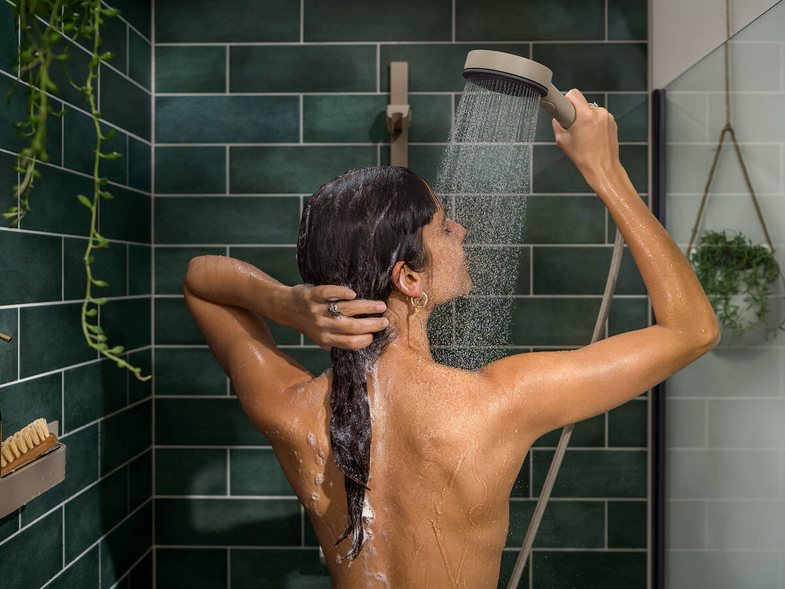
Dandruff shampoos can help treat some types of acne, especially those caused by Malassezia (fungal acne). Many dandruff shampoos, such as those with zinc pyrithione, are designed to prevent the growth of the fungus that causes dandruff and may also help clear up fungal acne. This active ingredient helps stop the growth of the fungus, which is the cause of both problems.
However, dandruff shampoos are not effective in treating acne vulgaris, which is the most common type of acne. Acne vulgaris is caused by a buildup of bacteria, oil, and dead skin cells on the skin, not by fungal growth. Therefore, dandruff shampoos will probably have no effect in treating this form of acne.
Is it safe to use?
For those suffering from fungal acne, using dandruff shampoos is safe and can provide results. However, for those with sensitive skin, such as those with atopic dermatitis (eczema), it may be important to consult a dermatologist before use. Some dandruff shampoos can cause drying or irritation of the skin, which can worsen the symptoms of dry skin or eczema.
How to use dandruff shampoo for acne?
If you decide to use dandruff shampoo, make sure to choose a version that is fragrance-free and free of irritating chemicals, especially if you have sensitive skin. Apply the shampoo with your fingers to your facial skin, leave it on for a few minutes, and then rinse with warm water. After that, you can use a moisturizer to help your skin stay soft and hydrated.
Alternatives for acne treatment
If you're looking for more effective and gentle treatments, there are several other options that may be more suitable for treating acne. These include antibiotics (such as oral amoxicillin or creams like clindamycin), antifungal treatments (for fungal acne), hormone therapy, and other more advanced treatments.
Remember, acne won't go away immediately, no matter what treatment you use. It can take up to 4-6 weeks to start seeing results and up to 3 months to achieve full improvement.
Can dandruff shampoos get rid of acne? Here's what you need to know
Dandruff shampoos can help treat some types of acne, especially those caused by Malassezia (fungal acne). Many dandruff shampoos, such as those with zinc pyrithione, are designed to prevent the growth of the fungus that causes dandruff and may also help clear up fungal acne. This active ingredient helps stop the growth of the fungus, which is the cause of both problems.
However, dandruff shampoos are not effective in treating acne vulgaris, which is the most common type of acne. Acne vulgaris is caused by a buildup of bacteria, oil, and dead skin cells on the skin, not by fungal growth. Therefore, dandruff shampoos will probably have no effect in treating this form of acne.
Is it safe to use?
For those suffering from fungal acne, using dandruff shampoos is safe and can provide results. However, for those with sensitive skin, such as those with atopic dermatitis (eczema), it may be important to consult a dermatologist before use. Some dandruff shampoos can cause drying or irritation of the skin, which can worsen the symptoms of dry skin or eczema.
How to use dandruff shampoo for acne?
If you decide to use dandruff shampoo, make sure to choose a version that is fragrance-free and free of irritating chemicals, especially if you have sensitive skin. Apply the shampoo with your fingers to your facial skin, leave it on for a few minutes, and then rinse with warm water. After that, you can use a moisturizer to help your skin stay soft and hydrated.
Alternatives for acne treatment
If you're looking for more effective and gentle treatments, there are several other options that may be more suitable for treating acne. These include antibiotics (such as oral amoxicillin or creams like clindamycin), antifungal treatments (for fungal acne), hormone therapy, and other more advanced treatments.
Remember, acne won't go away immediately, no matter what treatment you use. It can take up to 4-6 weeks to start seeing results and up to 3 months to achieve full improvement.
Suggested articles:





